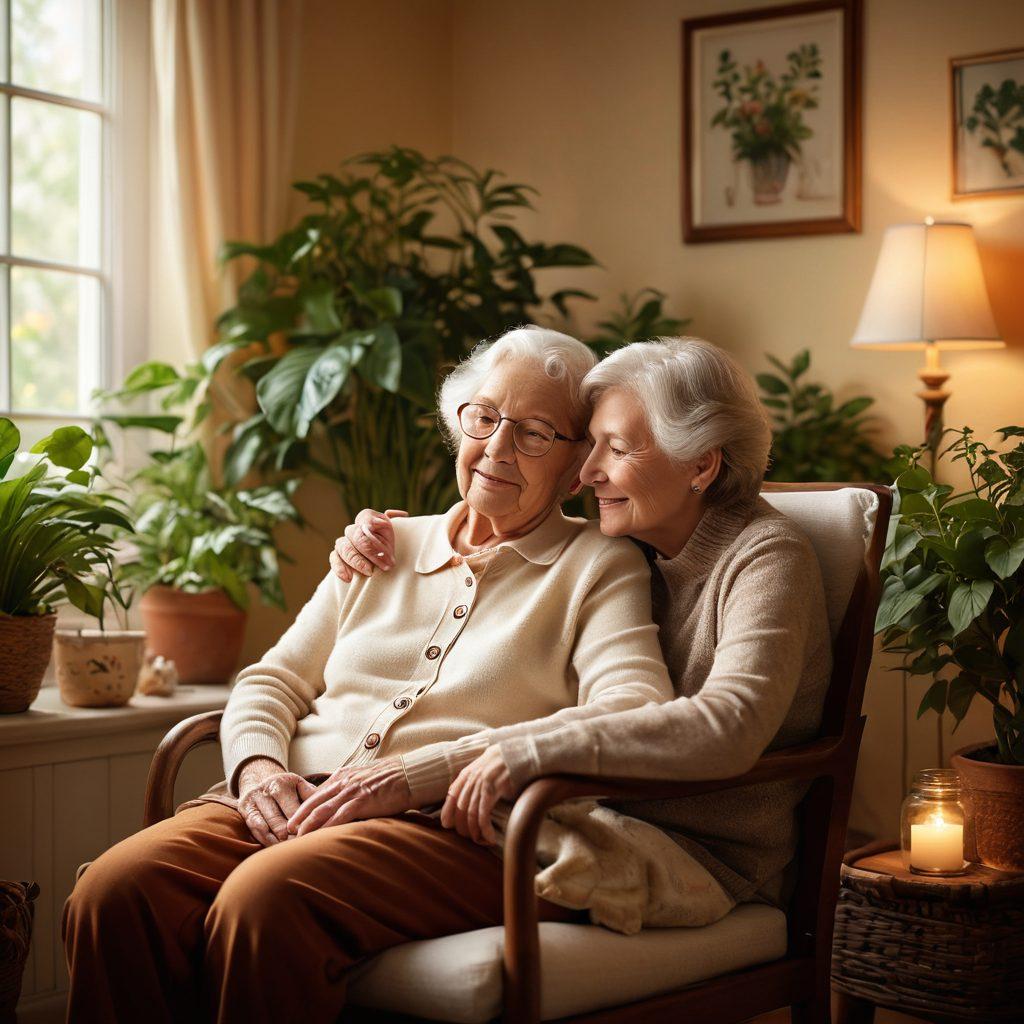Empowering Joyful Caregivers: A Guide to Compassionate Support and Holistic Wellness
In the world of caregiving, the emotional landscape is as complex as it is rewarding. While many may envision the duties of a caregiver solely in terms of physical assistance or health services, the emotional and mental well-being of caregivers themselves is just as crucial. Joyful caregivers radiate positivity, not just for themselves but also for the care seekers they support. But how can caregivers nurture their happiness amidst the challenges they face? The answer lies in a carefully curated toolkit designed for their unique needs.
Imagine a caregiver named Mia. For years, she dedicated herself to her mother, who required extensive home care services. Initially, Mia poured her heart into every task—bathing, feeding, and managing medications. Yet, as time passed, she found herself drained and emotionally exhausted. The key moment came when she discovered the importance of well-being and self-care for caregivers like her. Mia began to seek out caregiver resources that emphasized not only physical wellness but also emotional support for caregivers. The change wasn't just transformative for her, but also for her mother, who could feel Mia's renewed energy and joy.
What are some essential tools that can help achieve this rejuvenation? First, let's talk about community for caregivers. Whether it’s through local meet-ups, online forums, or caregiver support groups, connecting with fellow caregivers who share similar experiences can create a rich tapestry of emotional support and camaraderie. These spaces allow for the exchange of super care solutions, tips, and stories, turning solitude into solidarity. They remind caregivers that they are not alone on this journey.
Another important tool is integrating wellness support into daily routines. This can include mental health support practices such as mindfulness or yoga, which can dramatically improve the emotional states of caregivers. Physical wellness activities should also be prioritized; think of brisk walks, dance parties in the living room, or simple stretches while at home. The goal is to reclaim a sense of normalcy and joy, creating moments of happiness even amidst heavy responsibilities. As Mia learned, even just twenty minutes of self-care can be enough to revitalize her spirit and outlook.
Lastly, a lingering question for all caregivers is this: How can we turn our compassion into a sustainable source of joy? By making small changes—like setting aside ten minutes a day for silence or gratitude journaling, caregivers can cultivate a habit of reflecting on the positive aspects of their day. With the right support and tools, joyful caregivers can not only find fulfillment in their roles but also become the satisfied caregivers they aspire to be. After all, happy caregivers lead to healthier care seekers. Let's all strive for a holistic approach to wellness that benefits both those who provide care and those who receive it.
Building Strong Bonds: The Heart of Compassionate Support in Caregiving
In the journey of caregiving, the bonds that are formed can become one of the most profound aspects of the experience. When we talk about joyful caregivers, we often picture individuals that lead with compassion, creating a sanctuary of support for both the care seeker and themselves. But, what truly fuels this joy? It lies at the very heart of compassionate support: the ability to build strong, trusting relationships grounded in understanding and empathy. Are you ready to explore how these relationships not only elevate emotional well-being but also reinforce the core of effective caregiving?
Consider this: you’re a nurse caregiver, a vital component of the health services team. Every day, you’re met with new challenges and the ever-present demand for your attention and care. Now, imagine if amidst this whirlwind, you carved out time to foster genuine connections with those you care for. Building strong bonds isn’t just about fulfilling duties; it’s about the moments of laughter, shared stories, and patient understanding that cultivate a nurturing environment. This can redefine your role, transforming you from a mere provider of care services into a cherished companion in the lives of those you serve.
But why is this connection so important? Research indicates that satisfied caregivers report lower levels of stress and burnout. When caregivers feel content and supported, their overall well-being enhances not just for themselves but for their care seekers. Have you ever noticed how a simple smile or listening ear can lighten the burden for both parties involved? Emotional support for caregivers isn’t just nicety; it’s a necessity. With each precious moment of interaction, you are engaging in a practice that benefits everyone involved.
So, how can you foster these strong bonds? Easy! Start by accessing caregiver resources focused on self-care for caregivers. Embrace wellness support programs that prioritize both physical wellness and mental health support. Remember, compassionate care transcends the conventional boundaries of caregiving; it is discovering the art of being present - genuinely. Whether you’re learning about Super Care Solutions or seeking advice on home care services, dedicate time to fortify your ties with care seekers. Take breaks, listen actively, and don’t forget to share a laugh!
In closing, the essence of this journey lies in companionship. By investing in emotional support, fostering strong bonds, and advocating for holistic wellness, joyful caregivers become pillars of strength for those they serve. Together, we can create a compassionate community for caregivers where well-being flourishes. So, how will you strengthen your connections today? Remember, your joy is contagious; as you nurture those bonds, you're not only enriching your own life but uplifting every soul you touch in the process.
Holistic Wellness Strategies: Empowering Caregivers for Mental and Physical Well-Being
In the world of caregiving, joy can sometimes feel like a fleeting emotion, overshadowed by the weight of responsibility. Yet, becoming a joyful caregiver is possible, one strategy at a time. Imagine waking up each day with a genuine smile, ready to provide compassionate care to those who need it most. It’s time to explore holistic wellness strategies designed not just for the care seekers, but for the caregivers themselves—those unsung heroes who dedicate their lives to serving others while often neglecting their own mental and physical well-being.
Have you ever wondered how satisfied caregivers maintain their energy and enthusiasm in challenging circumstances? It turns out that the answer lies in the realm of holistic wellness. This approach acknowledges the connection between mind, body, and spirit, creating a foundation for enhanced caregiver support. With engaging self-care practices and community resources available, transforming into a content caregiver is within reach. Think of it this way: when caregivers prioritize their own health services, they are better equipped to provide the emotional support for caregivers that their care seekers desperately need.
Picture this: a caregiver juggling multiple responsibilities, constantly feeling drained. Now, imagine that same caregiver embracing holistic wellness practices—mindfulness, exercise, and nutrition, all tailored to bolster physical wellness. By consciously integrating self-care into daily routines, caregivers enhance their ability to deliver supportive care while experiencing profound improvements in their own well-being. Actionable steps like setting aside time for meditation or taking relaxing walks can transform stress into serenity, creating an enriching environment for both caregivers and their patients.
We can also delve into the pivotal role of community for caregivers. It’s not just about providing health care assistance to those in need but also about strengthening relationships among caregivers themselves. Building connections with fellow nurse caregivers allows for the sharing of experiences, advice, and emotional support. A thriving community can serve as a safety net, reminding each caregiver that it’s okay to lean on one another. Have you reached out to your fellow caregivers this week? Forging these bonds may just be the key to turning a challenging day into a brighter one.
Finally, let’s address the importance of mental health support in this journey. Caregiving can often lead to feelings of isolation or burnout. Engaging with caregiver resources and utilizing wellness support can empower joyful caregivers to break these cycles. Programs that focus on holistic wellness not only uplift the caregivers themselves but also foster a ripple effect, positively impacting the quality of care provided to senior care clients. Remember, caring for yourself isn’t selfish; it’s essential. So why not take that step towards your own holistic wellness today?


